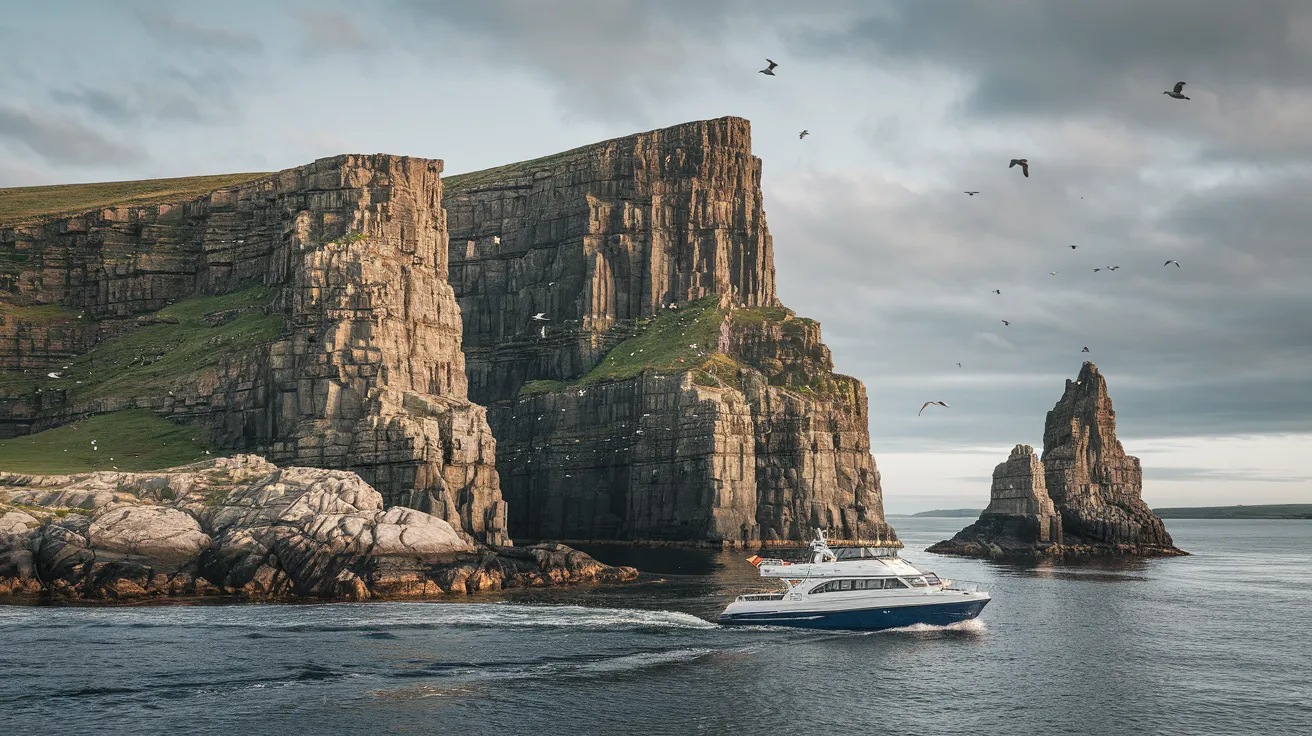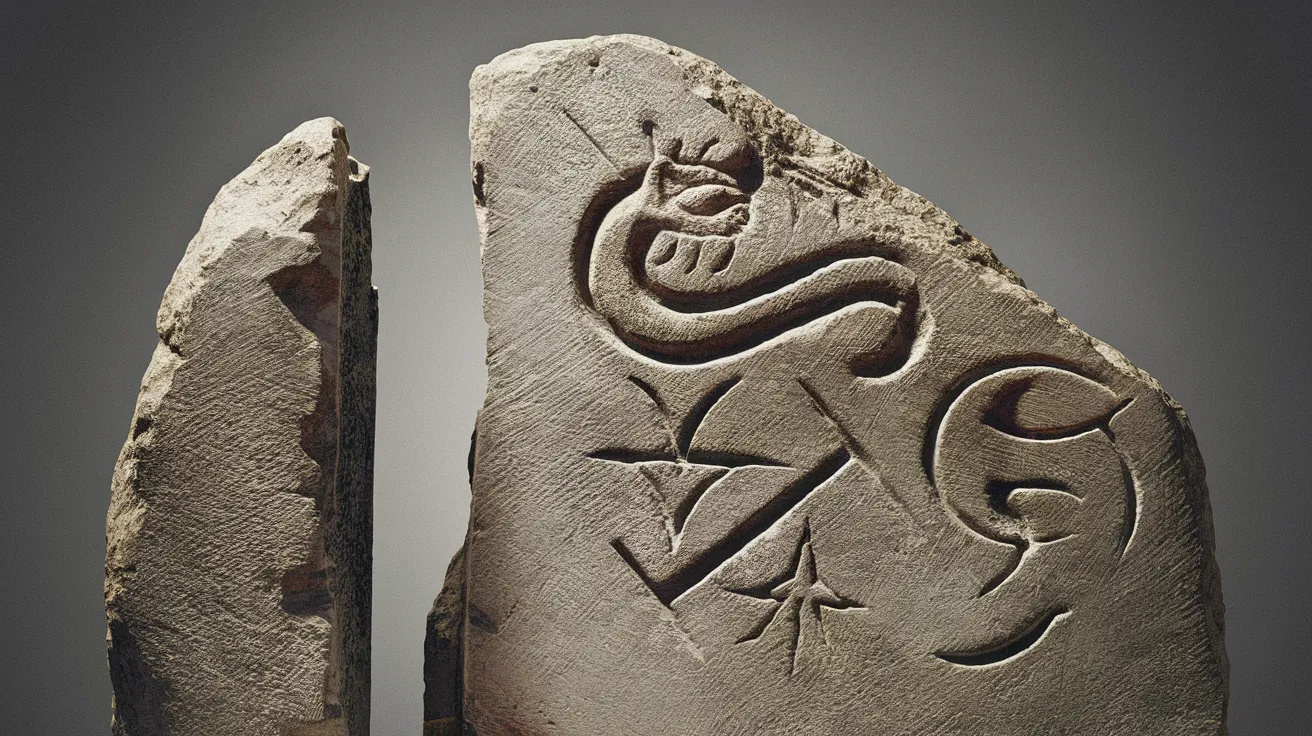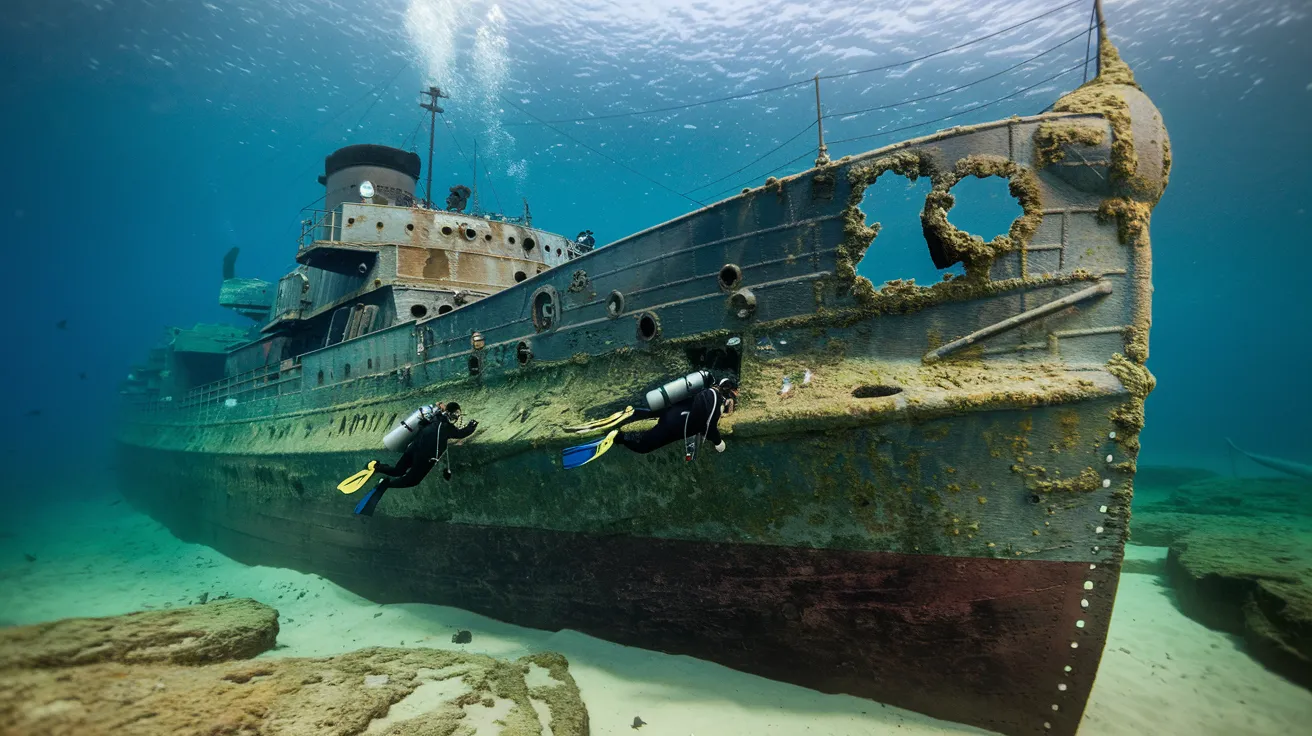Quick Navigation
- The Sound of Orkney: Characteristics and Influences
- The Orkney Fiddle Tradition
- Where to Hear Live Trad Music
- The Orkney Folk Festival: A Global Gathering
- Notable Orkney Musicians
- Learning and Participating
- Frequently Asked Questions
- What makes Orkney fiddle music different?
- When is the Orkney Folk Festival?
- Where can I hear live traditional music in Orkney?
- Can beginners join in music sessions?
Step into almost any Orkney community hall or pub during festival time, and you'll likely hear it: the lively, rhythmic pulse of traditional Orcadian music. More than just entertainment, Orkney's folk music is a living tradition, deeply woven into the fabric of island life, connecting generations through shared tunes and dances. Led by the fiddle and influenced by both Norse and Scottish heritage, it's a unique sound characterised by its energy, distinctive bowing style, and strong community roots. This guide explores the heart of Orkney's traditional music scene, from its key instruments and styles to its vibrant festivals and renowned musicians.
The Sound of Orkney: Characteristics and Influences
Orkney's traditional music possesses a unique character shaped by its history and geography:
- Fiddle Dominance: The fiddle is the cornerstone of Orkney music, often leading melodies with a distinctive technique.
- Scandinavian & Scottish Blend: While sharing tunes with Shetland and mainland Scotland (reels, jigs, strathspeys), Orkney music retains echoes of its Norse past in certain rhythms and modal characteristics.
- Rhythmic Lift: Orcadian fiddle playing often features a short, light, staccato bowing style, creating an energetic 'lift' perfect for dancing. This contrasts with the smoother, more flowing styles found elsewhere in Scotland or Ireland.
- Community Focus: Music is often learned by ear and passed down through families and community groups, emphasizing participation over formal performance. It's integral to weddings, harvest homes, and local dances (ceilidhs).
- Common Instruments: Alongside the fiddle, the accordion provides harmonic backing and melody, while guitar and piano often supply rhythmic accompaniment.
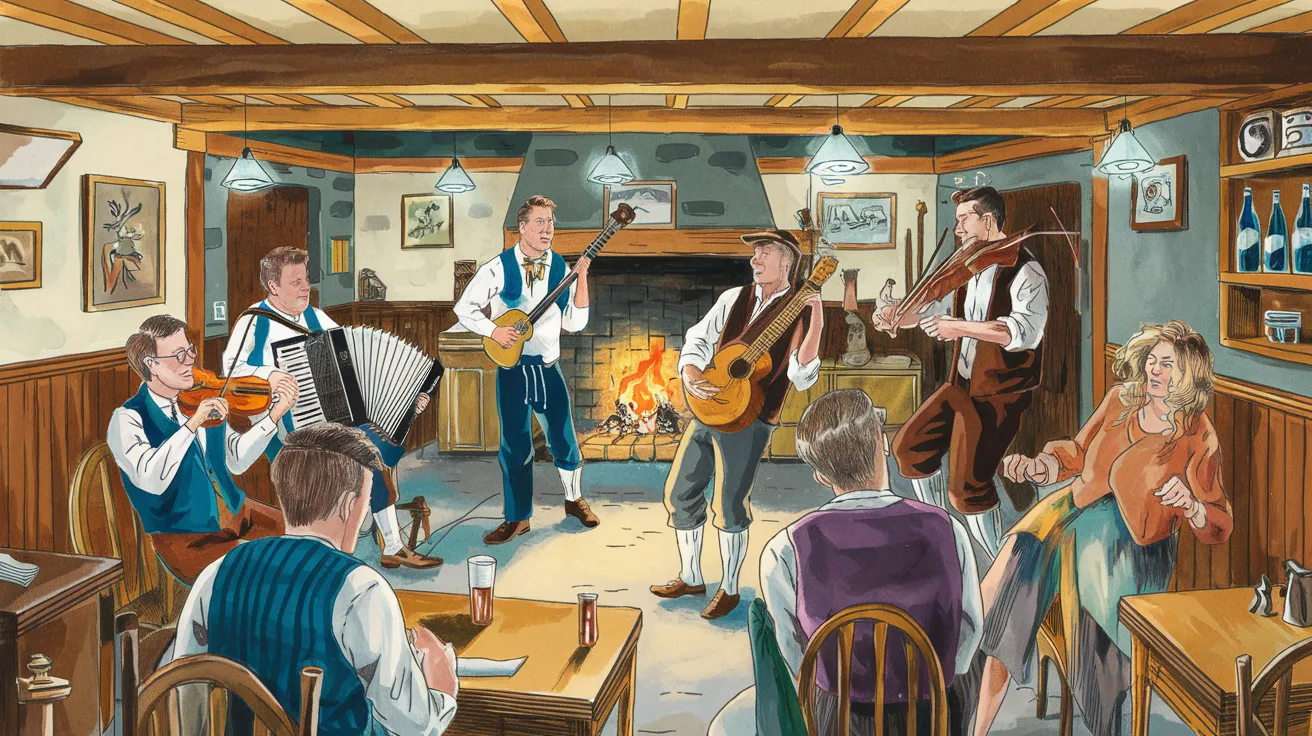
The Orkney Fiddle Tradition
The fiddle is central to Orkney's musical identity. The local style is renowned for its unique bowing – often described as a 'shuffle' – which gives tunes their characteristic drive and danceability. This technique involves short, crisp bow strokes, often with subtle accents, differing markedly from the longer bow strokes common in other traditions. Historically, tunes were passed down aurally, with groups like the Orkney Strathspey and Reel Society (formed 1948) playing a crucial role in preserving this repertoire before widespread notation.
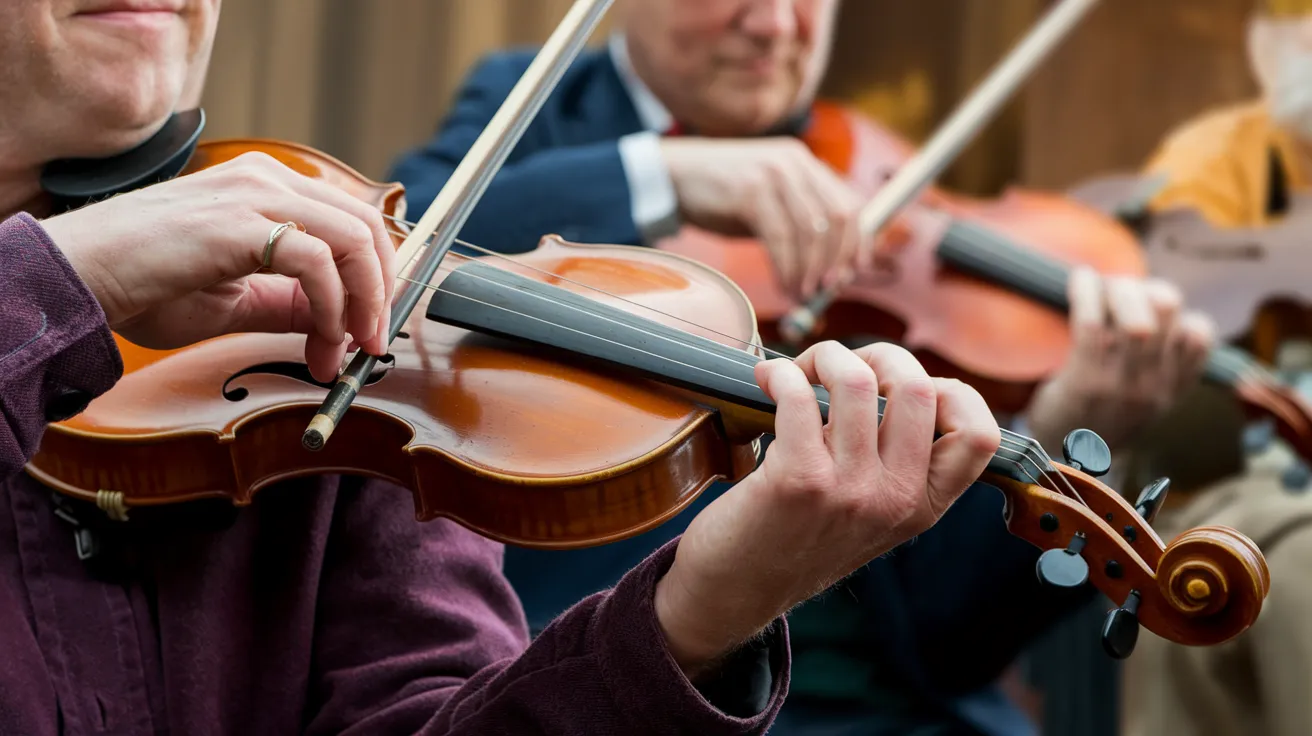
Common tune types include fast-paced reels and jigs for dancing, the distinctively Scottish strathspeys with their 'snap' rhythm, and lyrical waltzes and slow airs often played with great feeling.
Where to Hear Live Trad Music
- Pub Sessions: While the legendary daily sessions at The Reel in Kirkwall are sadly no more, informal sessions still pop up, especially during festival times. Check pubs like The Ferry Inn in Stromness or the Auld Motor Hoose and Helgis in Kirkwall for potential live music nights.
- Community Halls: Many local communities (e.g., Stenness, Harray, Sanday) host regular dances and ceilidhs featuring live local bands playing traditional dance music. These offer an authentic experience of music as a social activity. Check local noticeboards or the 'What's On' section of The Orcadian newspaper.
- Festivals: The Orkney Folk Festival is the main event, but other festivals like the St Magnus International Festival may also feature traditional music elements.
The Orkney Folk Festival: A Global Gathering
Held annually over the last weekend in May, the Orkney Folk Festival is one of the UK's premier folk music events, centred around the picturesque harbour town of Stromness.
- Atmosphere: The festival transforms Stromness, with concerts in the Town Hall and Stromness Academy, lively pub sessions spilling onto the streets, and ceilidh dances in community halls.
- Line-up: Features a vibrant mix of top local Orcadian talent alongside leading folk acts from Scotland, Ireland, Scandinavia, North America, and beyond. Expect everything from blistering fiddle sets to soulful ballads and innovative folk fusion.
- Events: Includes concerts, ceilidhs, workshops (learn fiddle, accordion, song), talks, and spontaneous pub sessions.
- Booking: Tickets sell out quickly! Keep an eye on the Orkney Folk Festival website for programme announcements (usually early spring) and ticket release dates (often early April). Accommodation in and around Stromness gets booked up months in advance.
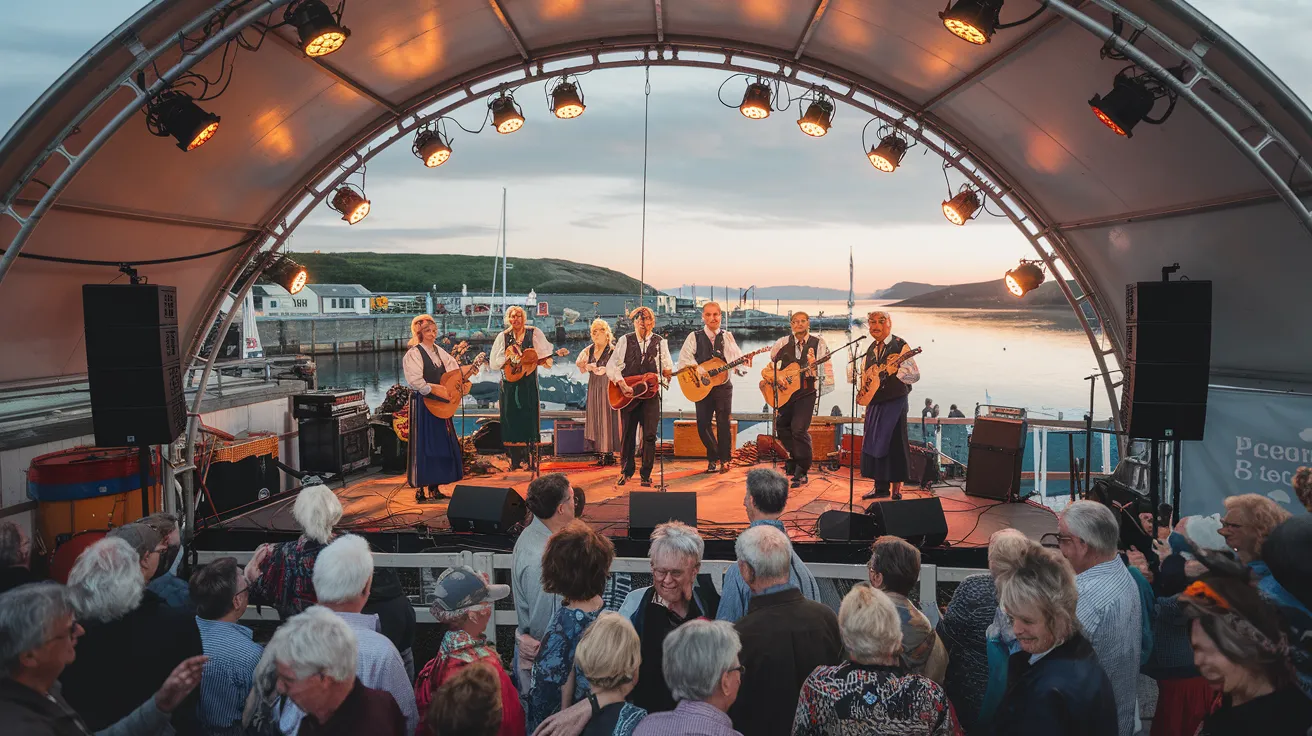
Notable Orkney Musicians
Orkney has produced many influential traditional musicians:
- The Wrigley Sisters (Jennifer & Hazel): Fiddler Jennifer and guitarist/pianist Hazel are internationally acclaimed ambassadors for Orkney music, known for their dynamic performances and compositions rooted in tradition.
- Douglas Montgomery (The Chair): A powerhouse fiddler known for his energetic style, both solo and with the popular Orkney band The Chair.
- Kristan Harvey (Fara, Blazin' Fiddles): Another highly regarded young fiddler who performs with leading Scottish folk groups.
- Historical Figures: Players like James Sinclair and groups like the Orkney Strathspey and Reel Society were vital in keeping the tradition alive through the 20th century.
- Songwriters: Artists like Ivan Drever have penned songs that capture Orkney life and folklore, becoming modern standards.
Learning and Participating
Orkney's music scene is welcoming to learners:
- Orkney Traditional Music Project (OTMP): Provides tuition and group playing opportunities for young people across the islands.
- Festival Workshops: The Orkney Folk Festival offers workshops for various instruments and levels.
- Community Groups: Organisations like the Orkney Strathspey and Reel Society welcome players and listeners to rehearsals.
- Sessions: While perhaps intimidating initially, informal pub sessions are often welcoming to musicians who know the local repertoire or can accompany respectfully.
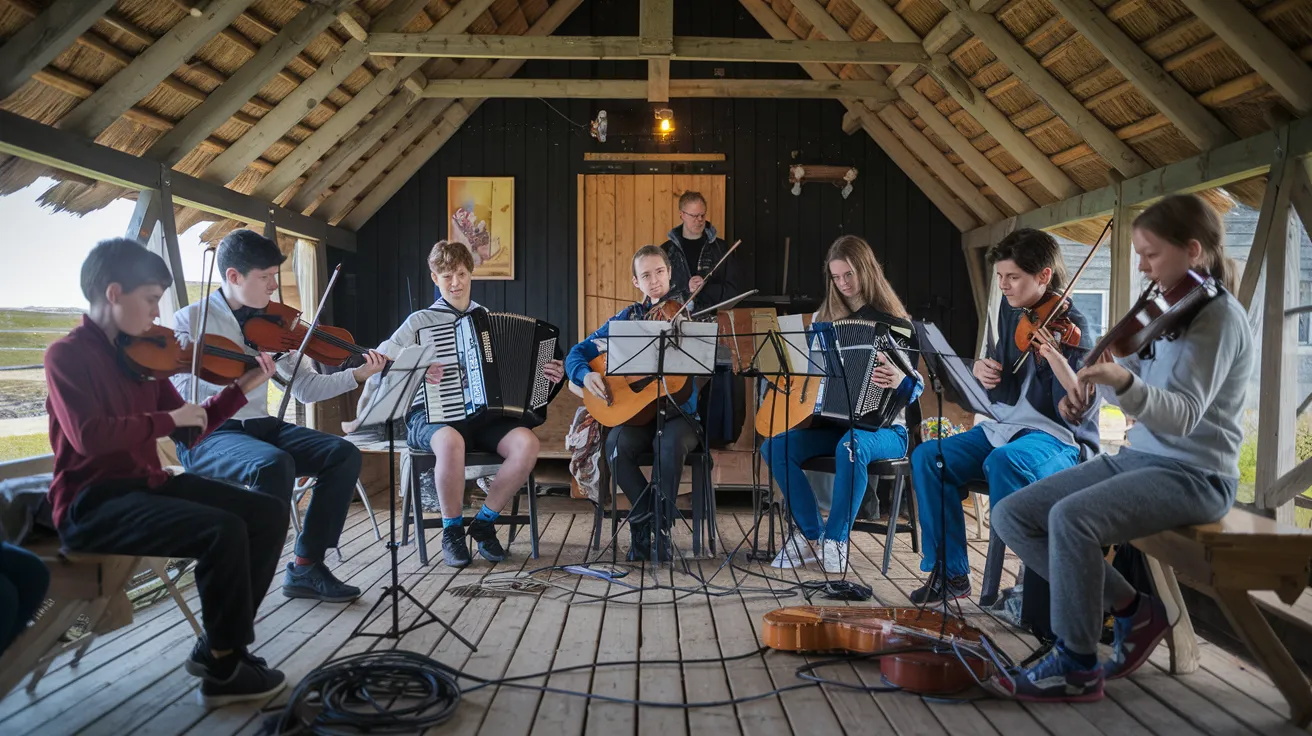
To find relevant videos, search YouTube for "Orkney Folk Festival live" or "Orkney fiddle music".
Frequently Asked Questions
What makes Orkney fiddle music different?
Its characteristic 'lift' comes from a short, rhythmic bowing style, often with Scandinavian influences in the tunes and modes used.
When is the Orkney Folk Festival?
It takes place annually over the last weekend in May.
Where can I hear live traditional music in Orkney?
Check local pubs (especially in Stromness and Kirkwall), community hall dance schedules, and listings during the Orkney Folk Festival.
Can beginners join in music sessions?
It depends on the session. Some are open 'come-all-ye's, while others might be faster-paced. It's best to listen first or ask the musicians.
Traditional music is the heartbeat of Orkney's community spirit. Whether you're tapping your foot at a lively pub session, dancing at a ceilidh, or attending a world-class concert at the Folk Festival, experiencing Orkney's music offers a joyful and authentic connection to the islands' enduring culture. Find Orkney accommodation that puts you close to the music hubs of Kirkwall and Stromness.

